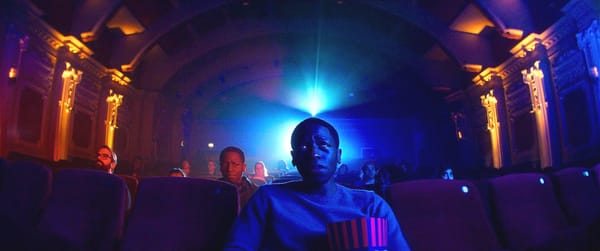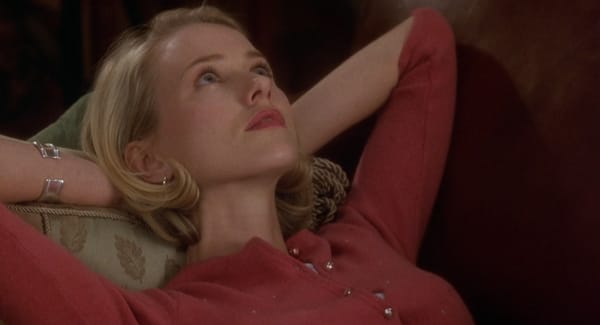Benedictions
"The Power of the Dog" is the the latest in a Cumberbatch hot streak

The Nut Graf: “The Power of the Dog” (on Netflix, ***1/2 stars out of ****), from Jane Campion, stars Benedict Cumberbatch as a brutal Montana cattle rancher. “Licorice Pizza” (in theaters, *** stars out of ****) is middle-drawer Paul Thomas Anderson but a great showcase for Alana Haim. “House of Gucci” (in theaters, **1/2 stars out of ****) is an all-ham buffet that’s good fun if not actually good.
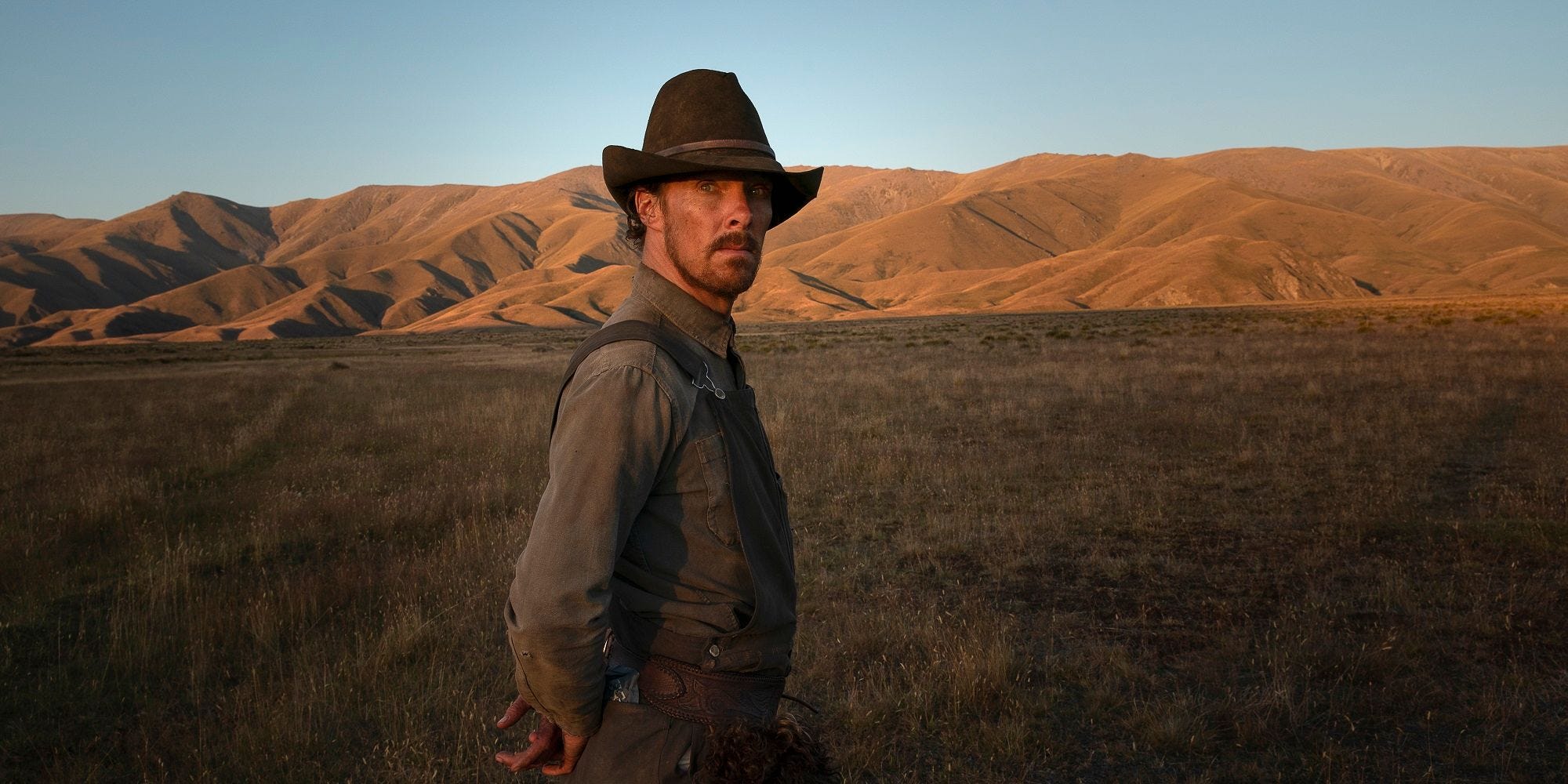
I sometimes think Benedict Cumberbatch wasn’t born but rather bioengineered in a lab dedicated to creating British gingers for the stage and screen. (Eddie Redmayne comes from there too, and I’d lay odds that Michael Caine was first out of the petri dish.) There’s his name, of course – six galumphing syllables that won’t be complete until there’s a “Sir” in front of them – and there’s the lack of any external persona that would allow us to consider him a star rather than an actor. How do we know Benedict Cumberbatch is a serious thespian? Because we have no idea who he is offscreen. He’s just entirely the role he’s playing at any given moment, and those roles change radically.
There are two very different Cumberbatches on view at the moment. As the title character in “The Electrical Life of Louis Wain” (Amazon Prime Video) – an eccentric Victorian artist who popularized cats as subjects for illustration and whose work grew increasingly and spectacularly bizarre – the actor is halting and damaged, a pathetic figure not quite of this earth. In “The Power of the Dog,” which debuts on Netflix today after a tour of the fall festivals and a theatrical release, he is Wain’s polar opposite, a brutally macho cattle rancher named Phil Burbank. Based on Thomas Savage’s 1967 novel, the movie takes place in the 1920s, midway between the mythic frontier and now, but Burbank is a figure out of the Old Testament. He’s patriarchal and domineering, contemptuous of anything that even smacks of sissification. Phil has a gently sad brother, George (Jesse Plemons, another chameleon), hungry for signs of civilization in the Montana wilderness, and when George brings home a careworn bride, Rose (Kirsten Dunst), and her less than manly teenage son (Kodi Smit-McPhee), Phil takes their presence as a personal affront. A psychological turf war ensues for which the newcomers are completely unprepared.
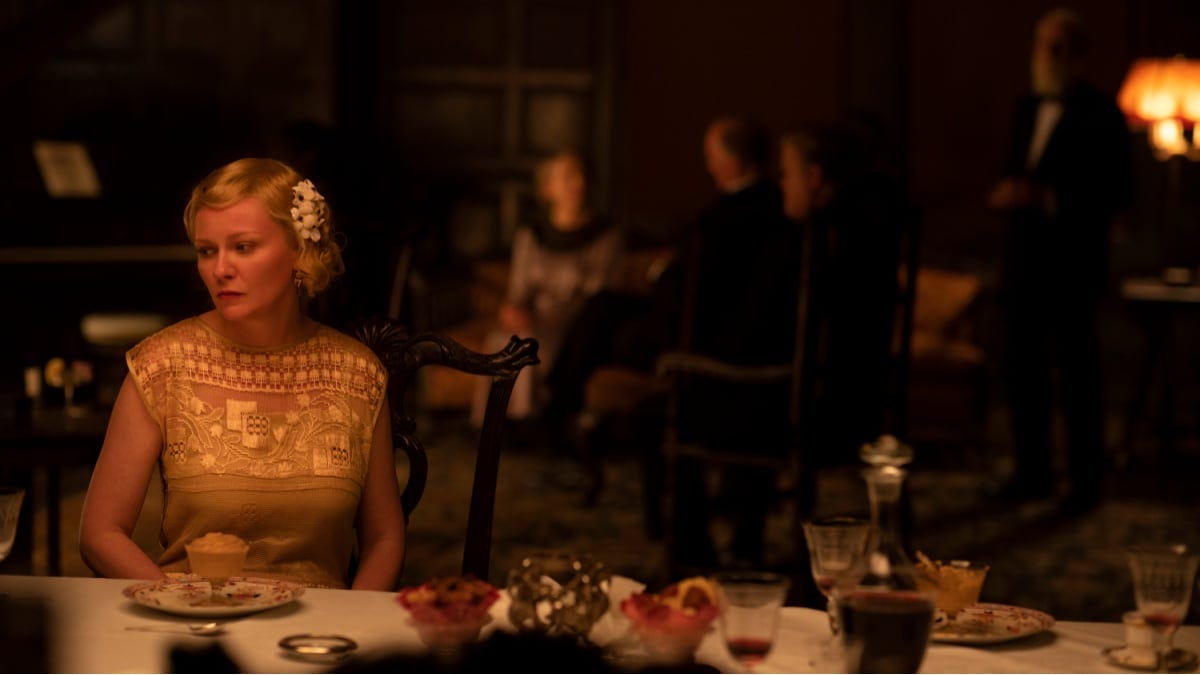
Cumberbatch plays Phil Burbank as an apex predator, a High Plains T. Rex pouncing on any sign of weakness. The actor’s beady little eyes have never been put to better use; Phil stares at people as if he were looking out from a gun turret. Yet the more we learn about the character, the more complicated he becomes, and the more clearly a primal wound swings into view. “The Power of the Dog” suggests that there are other, subtler predators out there, and it builds to pitch of dusty intensity before pulling its punches in the final scenes.
Or does it? The director is Jane Campion, who could never be accused of not knowing what she’s doing. She plunged Holly Hunter into the wildness of 19th-century New Zealand in “The Piano” (1993), told the story of poet John Keats from the vantage point of his lover Fanny Brawne (Abbie Cornish) in “Bright Star” (2009), and turned America’s Sweetheart Meg Ryan into an erotic noir heroine in “In the Cut” (2003), a once-mocked film whose stock has risen in recent years. Campion is a tough-minded artist and a master of her medium, and “The Power of the Dog” feels elemental and assured, its power struggle taking place against a majestic backdrop of New Zealand mountains. (It’s like the American West on steroids.) All of Campion’s previous films have focused on the experiences of women; this is the first in which the primary character is a man, and a stridently masculine one at that. Perhaps that’s why “The Power of the Dog” turns away from the violent confrontation toward which it seems to be building and which Phil himself may desire. Campion’s not playing his game; instead, she’s exposing the game as an illusion, one built on layers of frontier mythology, machismo, and denial. Yet it’s the tenderness with which this movie undoes its central figure that’s most shocking, and Cumberbatch catches every nuance of a man hiding away inside a granite version of himself.
A couple of quick takes on films that opened in theaters last week:
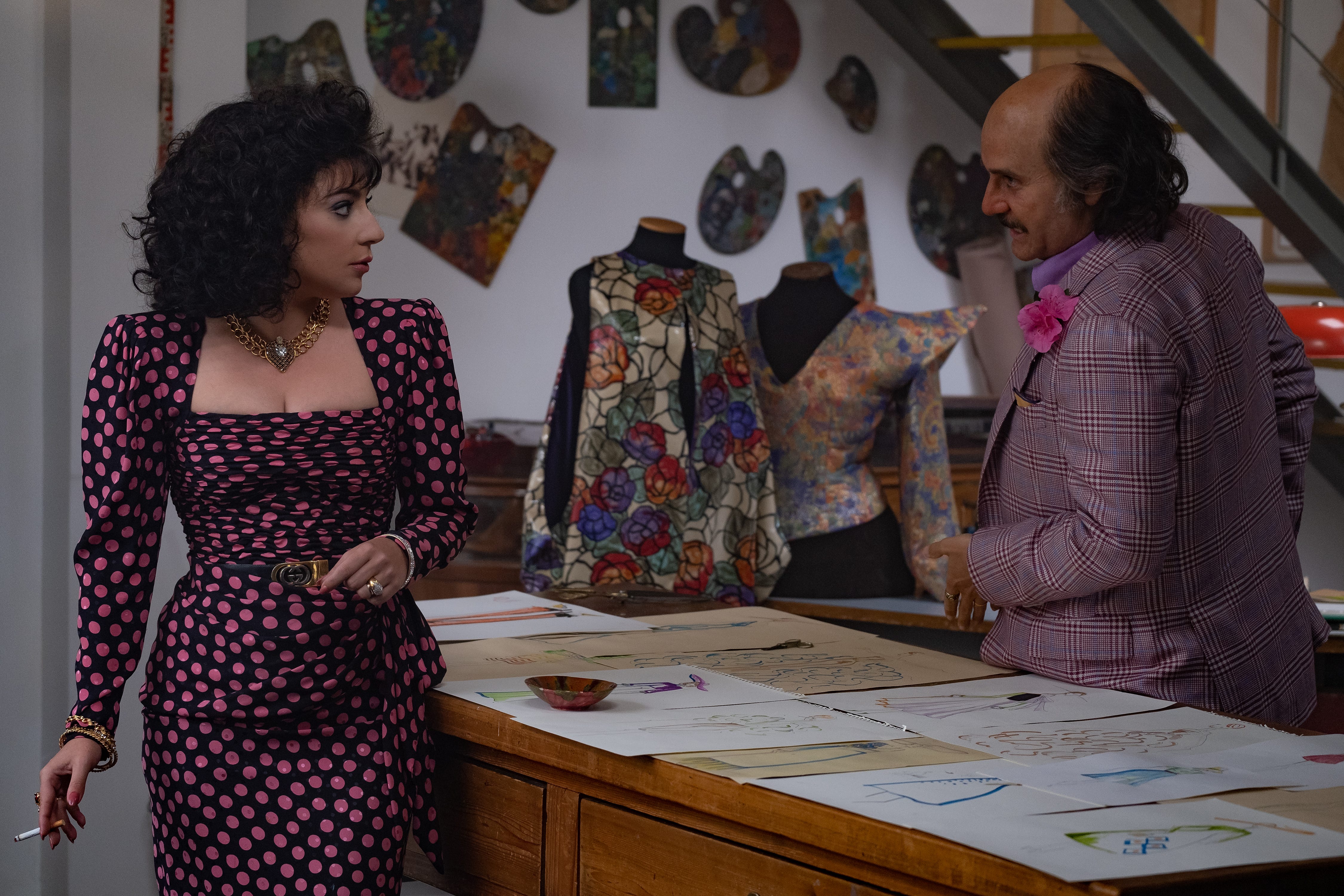
How do you slice ham? Let us count the ways in “House of Gucci,” a loud, enjoyably pointless opera buffa that fictionalizes the financial and criminal shenanigans of the famous Italian design family. (The actual Guccis are not amused.) There is the Anna Magnagni “I will own every frame of this movie” approach of Lady Gaga, who as Patrizia Reggiani, the manipulative commoner marrying into the Gucci dynasty, shoulders her way to center stage with crudely irresistible vigor. There’s the wily old pro who’s been carving prosciutto for decades: Al Pacino, expansively vulgar as company head Aldo Gucci. There’s the “See what I’m doing here, I’m underacting” school exemplified by Adam Driver as Maurizio Gucci, the nebbishy rising heir. There’s Jeremy Irons quietly and classily desiccating in a corner as Rodolfo, Maurizio’s father and Aldo’s brother. And then there is Jared Leto as Aldo’s son Paolo, a performance for which mere words cannot suffice. Unrecognizable under a fat suit, multiple chins, and a Larry Fine hairdo, Leto paints an outsized portrait of a giant baby who’s never been taken seriously by anyone in his family, and for good reason – Paolo’s an idiot. The actor doubles down on the tutsi-fruitsi accent and wallows in the character’s self-pity until Paolo becomes richly comic and then unexpectedly moving; this isn’t ham, it’s the entire pig, and it’s marvelous. That said, you can sense director Ridley Scott going through his paces here without ever getting a grip on the material, which despite the colorful caricatures onscreen never develops an overarching storyline. (It also features some of the most awkward music needle drops in recent memory.) Scott had two films released this year: “House of Gucci” is getting more attention, but “The Last Duel” was the better movie and nobody saw it. (“Duel” is currently available only for purchase at premium on-demand prices at Amazon Prime, DirecTV, Vudu, and elsewhere, but it will likely be an inexpensive streaming rental option before the year is out.)
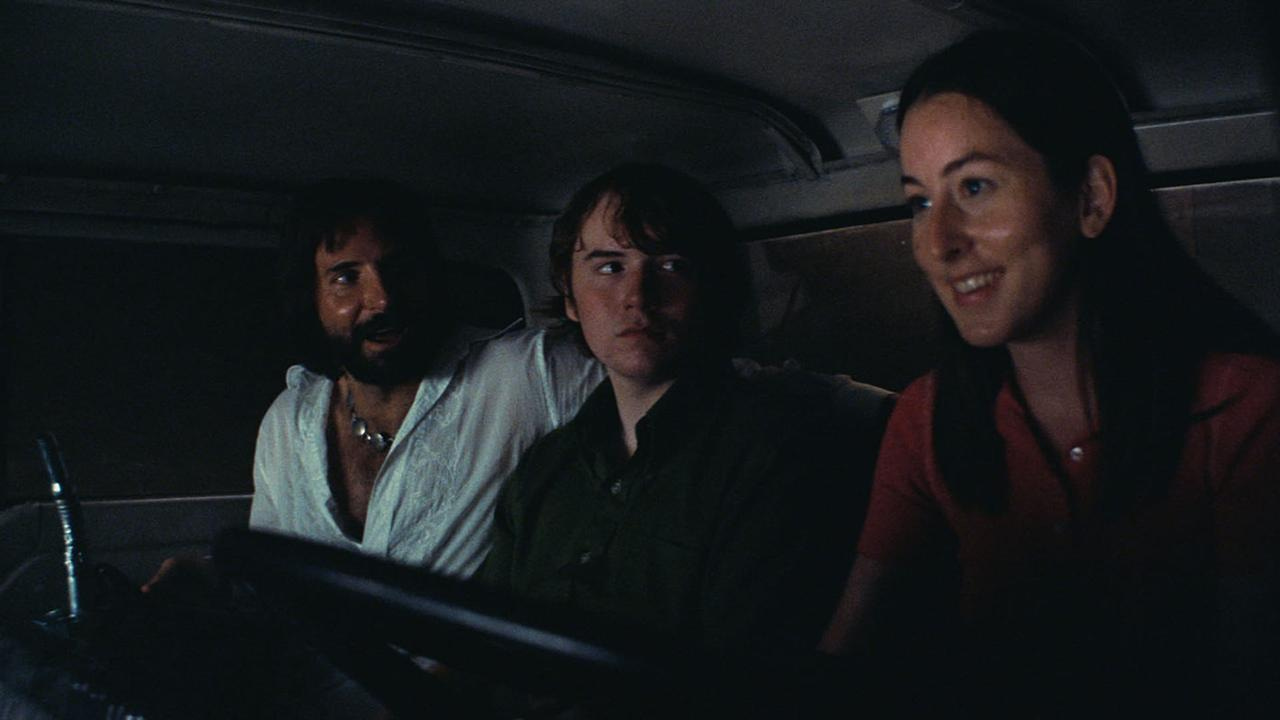
“Licorice Pizza” is minor Paul Thomas Anderson – a phrase I didn’t think I’d ever write – but it has its satisfactions. It returns the writer-director to his home country of the San Fernando Valley, the setting for “Boogie Nights” (1997), “Magnolia” (1999), and “Punch-Drunk Love” (2002), and like “Boogie Nights,” it takes place in the polyester 70s. Philip Seymour Hoffman’s son Cooper has his first film role as Gary, an absurdly confident 15-year-old who falls hard for Alana, an “older woman” – she’s 25 – played by Alana Haim of the rock trio Haim (her bandmate sisters play her sisters in the movie). “Licorice Pizza” has little throughline aside from its lead duo’s chaotic and at times very funny relationship; it’s episodic in structure and some of the episodes don’t go anywhere especially interesting. Gary’s a successful child actor who’s aging out – there’s a terrific sight gag of him looming over the competition at an audition – and the film is sharp whenever it deals with the humdrum humiliations of L.A. show business. Otherwise it meanders agreeably among its various Valley oddballs, including Bradley Cooper as a riotously coked-up Jon Peters and Sean Penn and Tom Waits as old-school Hollywood tough guys. Haim is fantastic – tart, cynical, lost – in a role that’s less than fully conceived, but everybody in this movie except Gary is a cartoon to one degree or another. Which, to be fair, is how often a 15-year-old sees the world. Anderson’s previous release, “Phantom Thread” (2017), is one of the greatest films of this young century. “Licorice Pizza” is one of the best movies of December 2021.
If you enjoyed this edition of Ty Burr’s Watch List, please feel free to share it with friends.
If you’re not a paying subscriber and would like to sign up for additional postings and to join the discussions, here’s how:
If you’re already a paying subscriber, I thank you for your generous support.



